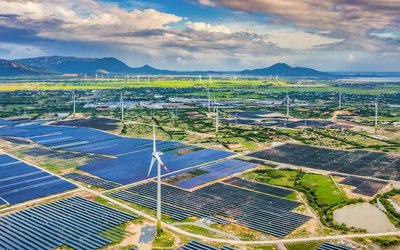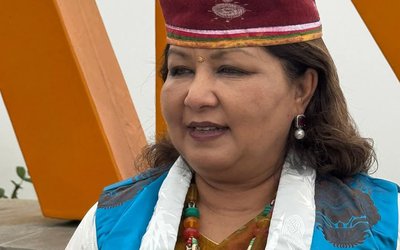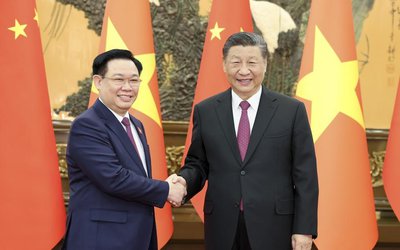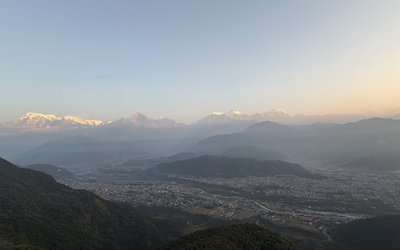
In the midst of different kinds of issues at home, Prime Minister K.P. Sharma Oli is embarking on a three-day state visit to India on April 6 at the invitation of his counterpart Prime Minister Modi of India. This is nothing unusual because our prime ministers in the last couple of years have all been showing eagerness to visit India and most of them have done so soon after assuming responsibility. This time Oli’s visit has not been talked about negatively also because of the fact that he does not face with the dilemma of which country(India or China) to visit first and is doing so after expanding the Cabinet by 11 ministers and 6 ministers of state from the two parties constituting the left alliance. Further, despite the prevalence of different kinds and levels of problems\issues in the country, Oli’s being away from home for a couple of days are not likely to seriously complicate matters here. Before dealing with the visit, let us touch upon some issues that have attracted the attention of people.
Despite positive observations of UML leaders, it looks like the efforts to conclude the proposed unification between CPN UML and the Maoist Center are not proceeding unhindered. At one point, the joint exercise came to an abrupt halt with the two parties indulged in hard bargain to secure a good deal in the unified party. The two parties have ironed out differences on ideological issues but they appear still poles apart on issues pertaining to sharing of power. While the Center is offered 30 percent stake in the unified party, it wants equal stake. The dispute came to the fore after Prachanda said that the merger would happen only under respectable terms and conditions. Hope the Center’s position of not settling for anything less than 50 percent does not lead to the much-detested political instability. Since matters are somewhat back on the track, it is believed that the unification of the two parties will take place not too long after Oli’s return from India. There is no reason why Oli should not confidently start negotiations in India as he is the undisputed leader of the two parties to be united soon, commanding about two-thirds majority in the Parliament. It is also believed that the reported imminent inclusion in the Cabinet of Madhesh-based parties (specifically Forum-Nepal) will now happen only after the trip during which the constitution amendment issue is likely to be discussed. It may be noted that Upendra Yadav has shown unwillingness to join the government without a written agreement on charter amendment with the left alliance. Yadav also wants their role in policy formulation related to economic and political matters. It is encouraging for Oli and his team that the two Madhesh-based parties led by Yadav and Thakur are not hostile to the left alliance and could join the government provided their oft repeated demands are met.
Another issue that has attracted the attention of a large number of people is the sacking by the Judicial Council of Chief justice Gopal Prasad Parajuli on March 14 stating that investigation of documents showed he had attained the retirement age seven months ago. This decision came at a time when Parajuli was administering the oath of office and secrecy to newly-elected President Bidya Devi Bhandari. It is perplexing that the Judicial Council (member secretary) took the decision on such a sensitive issue which was debated in different quarters since long. Writ petition has been filed challenging the legality of oath of office administered to President Bhandari by then Chief Justice Parajuli. Hope the apex court does not look divided as it looked and any cracks that may have developed to erode the image of the Supreme Court will have to be mended soon. Oli may contribute in his own way to make sure that the justices at the apex court are not divided in different factions.
European Union Election Observation Mission to Nepal (EUEOM) has also attracted the attention of a large number of people through its report which suggests that the design of the proportional quota system that includes well represented social groups such as Khas Arya, among the groups for inclusion, is in contravention of international standards on equality. Prime Minister Oli took the lead in asserting that the report undermined Nepal, its sovereignty and its achievements. Lawmakers from the ruling alliance have also condemned the report, which has recommended not allocating proportional representation election quota to Khas-Aryas. The opposition Nepali Congress (NC) has also condemned the report separately. Mostly, Oli’s remarks on sensitive issues are taken positively by people at large and his remarks on the EUEOM report could not be an exception but what we should not forget is the fact that they are just recommendations, which could be dealt with by the concerned agency. The right agency to deal with such matters in the present context is the Election Commission which has already communicated to the concerned that their recommendation pertaining to quota allocation is not acceptable. So, let us not discuss this anymore in different fora and the Parliament because Nepalis want their leaders and other notable personalities to conserve energy and use it elsewhere in a sensible way.
The ongoing meeting of the NC Central Working Committee has also attracted the attention of many people as senior leaders of the party have criticized party President Deuba and demanded the party’s General Convention or a Mahasamati meeting be held at the earliest to effect revolutionary changes in the party’s functioning. Presenting a nine-page document, Prakash Man Singh took the lead in criticizing Deuba ,citing formation of a jumbo Cabinet of 64 by Deuba, his decision to promote a DIG to the post of IGP of Nepal Police, filing impeachment motion against Chief Justice and condemning Supreme Court verdict as the causes that not only disgraced Deuba but the entire party. Leaders like Ram C Poudel, Ram S Mahat,Krishna Sitaula and others have accused Deuba of breaching the party statute, distributing election tickets arbitrarily, failing to exercise intra-party democracy, and not following the due decision making process. While these noted leaders and many others in the Working Committee see serious leadership deficiencies as the major reason for the embarrassing election results, Deuba, strongly backed by his loyalists, believes that intra-party betrayal was the major reason and there is no need for him to take the moral responsibility for the loss as demanded by other leaders. Oli, however, does not have to worry about this internal issue of NC, which is the outcome of the electoral injury inflicted on Deuba-led NC by the left alliance coordinated by him and Prachanda. The continuing blame game did come to a temporary halt to mourn the sad death in Delhi of NC leader Khum Bahadur Khadka who died on March 30, aged 68, at Apollo Hospital there. Despite being convicted by the apex court on corruption charge, Khadka remained a very popular leader in NC and his decades-long contribution to the democratic movement of Nepal can under no circumstance be belittled. His last rites were performed in Pashupati Aryaghat on April 1, 2018.May the departed soul rest in peace.
Indeed, Oli has to proceed with an idea at the back of his head that economic issues have taken precedence over political issues globally. He may wish to remember President Trump of the US and Prime Minister Modi of India attracting the attention of President Xi of China towards the swelling trade deficit of their countries with China. We have huge trade deficit with both China and India and the chances of reducing this trade gap are very rare in the near future as the ailing economy of Nepal is not showing any sign of improvement, which has been highlighted very well in the white paper made public on behalf of government of Nepal by Finance Minister Yubaraj Khatiwada. Expectedly, the white paper has depicted a gloomy picture of the economy stating that a majority of Nepal’s economic and development indicators were negative and economic activities were shrinking due to lack of a favorable business environment. He also admitted that the government was facing difficulties garnering resources due to violation of fiscal rules and regulations. Tendency of the government to take decisions without consulting the Ministry of Finance added fiscal pressure on the government and clearly showed the deteriorating fiscal discipline in the country. Stating that the privatization drive of the 90s had failed, Khatiwada added that the present government would retain public entities in areas where its presence is deemed necessary and where the state has to provide basic services to guarantee fundamental rights. Indeed, the accusation that Deuba government failed to maintain fiscal and financial discipline because of which the government’s budget balance saw a deficit of Rs. 200 billion this fiscal year is not easily refutable. Further, without ensuring resources, Deuba government had approved multi-year contracts to the tune of Rs. 122 billion. Oli’s Finance Minister Does not run the risk of being confronted by knowledgeable stalwarts of NC many of who did not approve of the way the budget was spent in a very distributive fashion by then government. Deuba’s decisions related to social security measures were also criticized by no other than his own senior colleagues in the party. There could be, however, sharp differences on the contention that the privatization drive started in the 90s had failed essentially. Khatiwada has wittily avoided blaming anyone explicitly because he must be aware that all the major political parties have subscribed to the concept and have been involved in its implementation while taking turns to manage state affairs over these years. Hope Khatiwada will not take too long a time to show some positive hope in the present depressed situation.
Oli must have learnt by now that in a transaction of Rs. 100, Nepal is exporting goods worth Rs. 7 and importing different products worth RS.93.Tariff and nontariff barriers may have occasionally stood on the way of our exports but what cannot be ignored is the bitter reality that we are not self-sufficient even in basic agricultural products like rice and vegetables. Our government, therefore, will have to proceed with a double pronged strategy of extracting concessions from our trading partners and strengthen the internal production base, starting with agricultural products. A lot can be expected from the two economies (India and China) that have grown on average by 8 and 9 percent respectively in the last ten years. In the back drop of increasing economic cooperation between India and China, Oli may seriously push a project, preferably in the hydro power sector, that would use our raw material, Chinese capital and Indian market for the ultimate consumption of the end product. This could contribute towards improving the pitiable condition of our economy which has grown on average by just 4 percent in the last ten years. It may also be noted that bilateral trade between China and India stood at US dollar0.2 billion in 1990 and reached 13.63 billion dollar in 2004 and in 2017 it reached 84.44 billion dollar. Even in the face of Doklam conflict (serious boarder problem between China and India\Bhutan), the trade between the two countries grew in the year 2017 during which Indian exports to China grew significantly to reach 16.34 billion dollar. In dealing with our two resourceful neighbors, offers of trade under favorable terms and conditions, concessional loans and strings-free aid from either party should be acceptable to us. Let us hope Oli succeeds in persuading the concerned in Indian to expedite work in a meaningful way on the much delayed Pancheswor (Mahakali) project and hopefully finds India serious in completing Arun 111 hydro project (costing 1.4 billion dollar) in the stipulated time of 5 years because friends of India here would like to believe that their neighbor on the south delivers what it promises, maintaining a timeline.

Dr. Tilak Rawal
Dr. Rawal is former governor of NRB.
- Six Months Of Deuba And Oli
- Jan 25, 2025
- Prachanda Outsmarted
- Jul 19, 2024
- Prachanda Outsmarts Again
- Apr 14, 2024
- Prachanda Completes One Year
- Jan 26, 2024
- Terrible Times To Continue
- Oct 12, 2023













